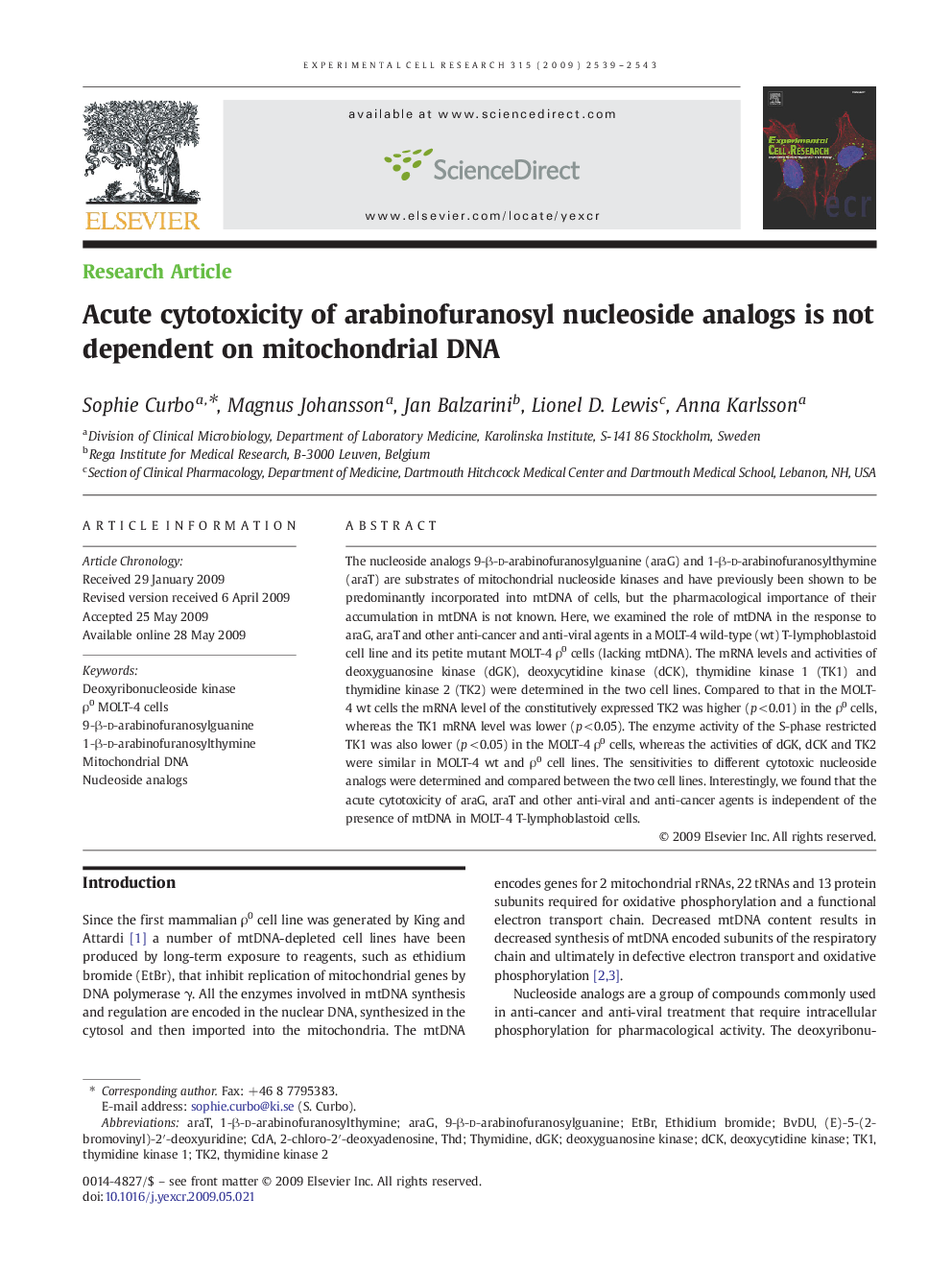| Article ID | Journal | Published Year | Pages | File Type |
|---|---|---|---|---|
| 2131552 | Experimental Cell Research | 2009 | 5 Pages |
The nucleoside analogs 9-β-D-arabinofuranosylguanine (araG) and 1-β-d-arabinofuranosylthymine (araT) are substrates of mitochondrial nucleoside kinases and have previously been shown to be predominantly incorporated into mtDNA of cells, but the pharmacological importance of their accumulation in mtDNA is not known. Here, we examined the role of mtDNA in the response to araG, araT and other anti-cancer and anti-viral agents in a MOLT-4 wild-type (wt) T-lymphoblastoid cell line and its petite mutant MOLT-4 ρ0 cells (lacking mtDNA). The mRNA levels and activities of deoxyguanosine kinase (dGK), deoxycytidine kinase (dCK), thymidine kinase 1 (TK1) and thymidine kinase 2 (TK2) were determined in the two cell lines. Compared to that in the MOLT-4 wt cells the mRNA level of the constitutively expressed TK2 was higher (p < 0.01) in the ρ0 cells, whereas the TK1 mRNA level was lower (p < 0.05). The enzyme activity of the S-phase restricted TK1 was also lower (p < 0.05) in the MOLT-4 ρ0 cells, whereas the activities of dGK, dCK and TK2 were similar in MOLT-4 wt and ρ0 cell lines. The sensitivities to different cytotoxic nucleoside analogs were determined and compared between the two cell lines. Interestingly, we found that the acute cytotoxicity of araG, araT and other anti-viral and anti-cancer agents is independent of the presence of mtDNA in MOLT-4 T-lymphoblastoid cells.
